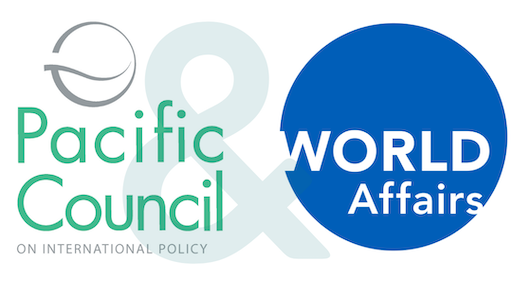An installment of the Pacific Council x World Affairs Global Leaders Series on how U.S. policy and global leadership can address food insecurity around the world, featuring Ambassador Ertharin Cousin.
The Pacific Council, based in LA, and World Affairs, based in San Francisco, are California’s leading global affairs organizations. We have joined forces to bring our members exceptional opportunities to hear from global leaders throughout the year ahead. The Pacific Council x World Affairs Global Leaders Series will feature the world’s top thinkers and doers from government, business, and civil society.
Featuring:
Ambassador Ertharin Cousin, Visiting Scholar, Center on Food Security and the Environment, Stanford University
Ambassador Cousin previously served as executive director of the World Food Programme from 2012 until 2017. In this role, Cousin led the world’s largest humanitarian organization with 14,000 staff serving 80 million vulnerable people across 75 countries. She is also a distinguished fellow of global agriculture at the Chicago Council on Global Affairs. Cousin possesses more than 30 years of national and international nonprofit, government, and corporate leadership experience. She maintains relationships with global government, business, and community leaders. She has published numerous articles regarding agriculture, food security, and nutrition. In 2009, Cousin was nominated by the president and confirmed by the Senate as the US ambassador to the UN Agencies for Food and Agriculture in Rome. In this role Cousin served as the US representative for all food, agriculture, and nutrition related issues. Read more.
Moderator:
Linda Calhoun, Founder and CEO, Career Girls
Linda Calhoun is an entrepreneur, activist, and community leader based in San Francisco, California. Linda is the Founder and Executive Producer of Career Girls, a nonprofit that was created as a response to the inequality of opportunity that Linda encountered in her story. Read more.
Background:
Hunger has generally been confronted as a humanitarian issue, and rightly so. But it must also be treated as an essential element of military or foreign policy, according to Ambassador Ertharin Cousin, former Executive Director of the UN World Food Programme (WFP). As she recently argued in Foreign Policy, conflict and hunger are intimately acquainted. Six out of 10 people struggling with acute food insecurity live in countries experiencing violent conflict, as do 80 percent or 122 of the world’s 150 million stunted children, who face a lifetime of physical and cognitive challenges. Now, the coronavirus pandemic risks making things even worse. Current WFP Executive Director David Beasley estimates that 270 million people globally will hover on the brink of starvation after the pandemic—most of them in countries suffering violent turmoil—up from the 135 million acutely hungry people pre-pandemic.
Syria and Yemen are just the latest examples of places where hunger and starvation are key ingredients in the recipe for conflict. Ambassador Cousin argues that addressing food insecurity should be a foreign policy tool for the elimination of global conflicts. How can U.S. policy and global leadership be better directed toward addressing food insecurity around the globe?
Watch the full conversation below:
A Partnership Between:





